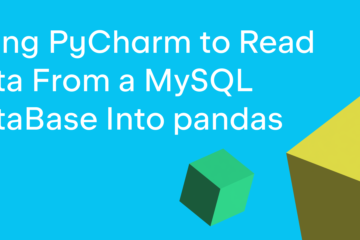This release comes with Python 3.10 support, auto-reload for browser HTML preview, and more!
Before we start the overview of the major PyCharm 2021.2 features, let’s spend a minute on several important side notes.
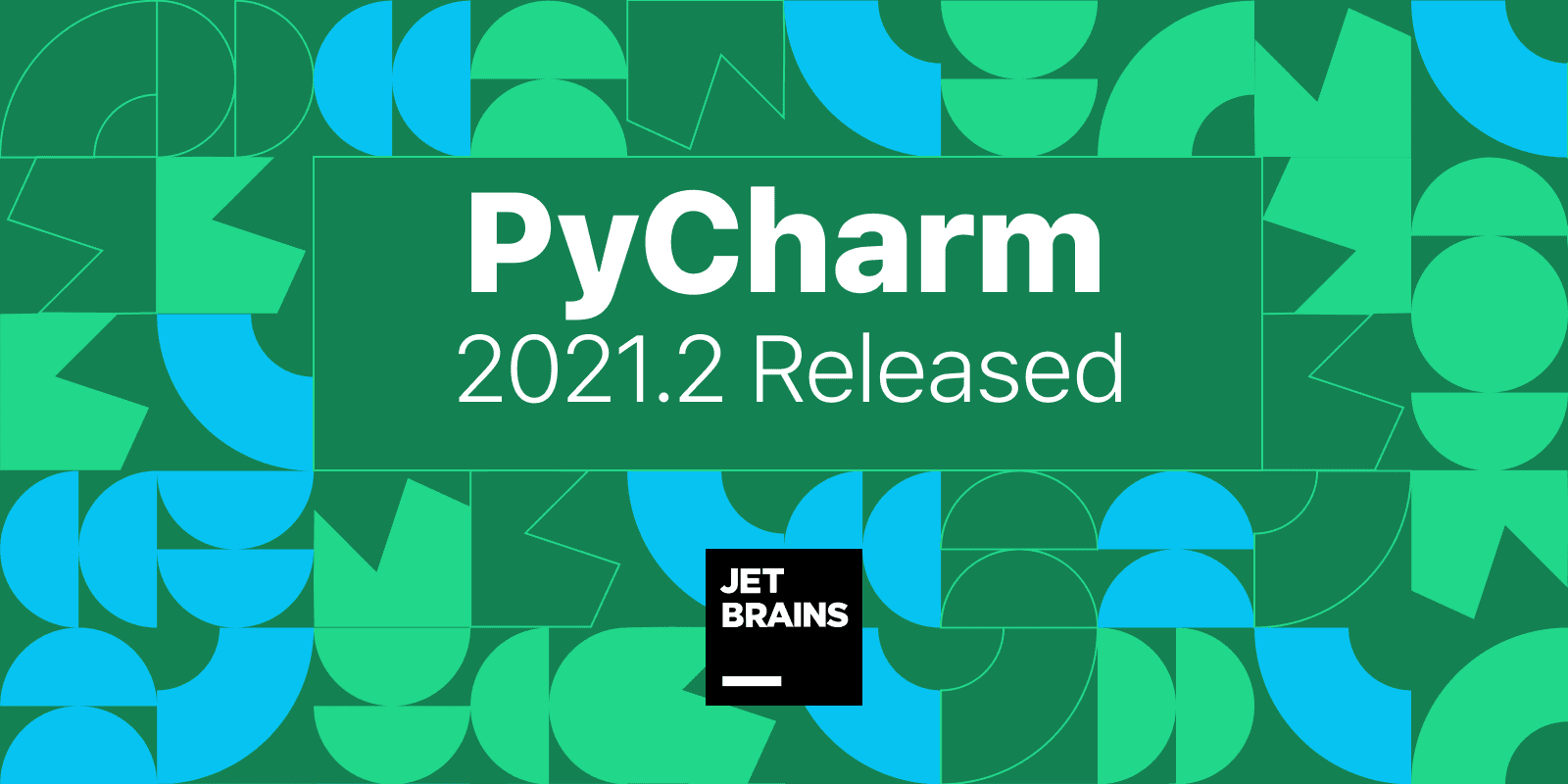
Before we start the overview of the major PyCharm 2021.2 features, we have some important information to make you aware of.
First of all, we have good news for our Asian users. Starting with this version, you can enjoy a fully localized UI in Chinese, Korean, or Japanese. Localization is available as a non-bundled language pack plugin, which can be easily installed in your IDE.
Secondly, please note that we are planning to end support for several packages. Namely for mako, buildout, web2py. This change will be introduced later this year, starting from PyCharm 2021.3.
Python 3.10
Structural Pattern Matching is coming in Python 3.10. PyCharm provides a number of key features to help you adjust to its arrival, like the Unused local symbols and Unreachable code inspections, smart code completion and syntax highlighting for the match and case keywords, and the Complete Current Statement action.
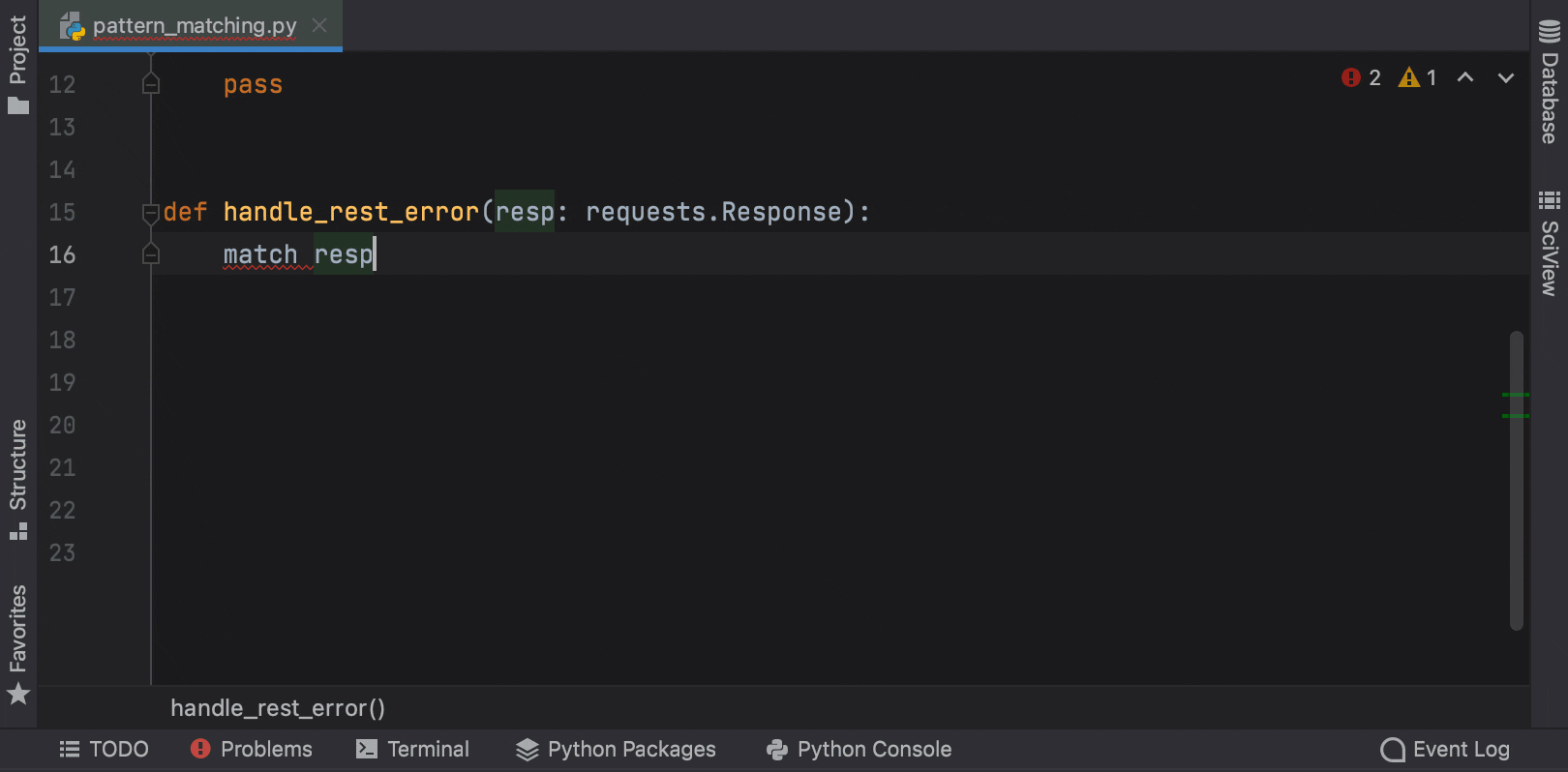
In Python 3.10 you will be able to use int | str for union types instead of Union[int, str]. This functionality is already available in earlier versions of Python through the use of from __future__ import annotations.
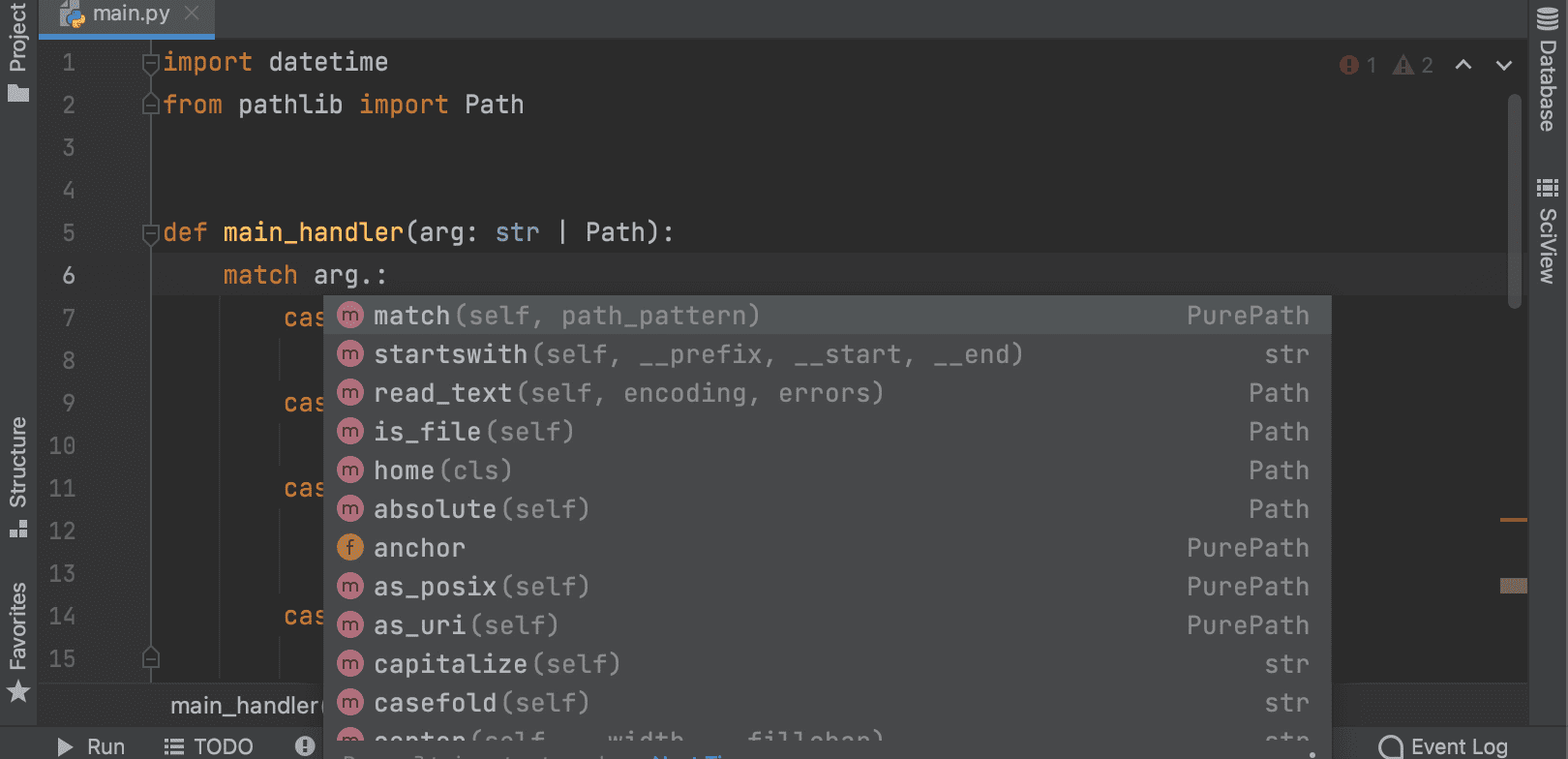
PyCharm provides overall code insight for the new syntax, including intention actions and information in the Quick Documentation. PyCharm now supports type inference for isinstance and issubclass arguments with the new syntax type.
Python console support in collaborative mode
Working in the Python console is now supported on both the client machine and the host side. During a collaborative coding session, guests can review the code while the host runs it in the interactive console. Support for the Python console in Code With Me comes complete with all the usual PyCharm features, such as on-the-fly syntax highlighting with inspections and code completion.
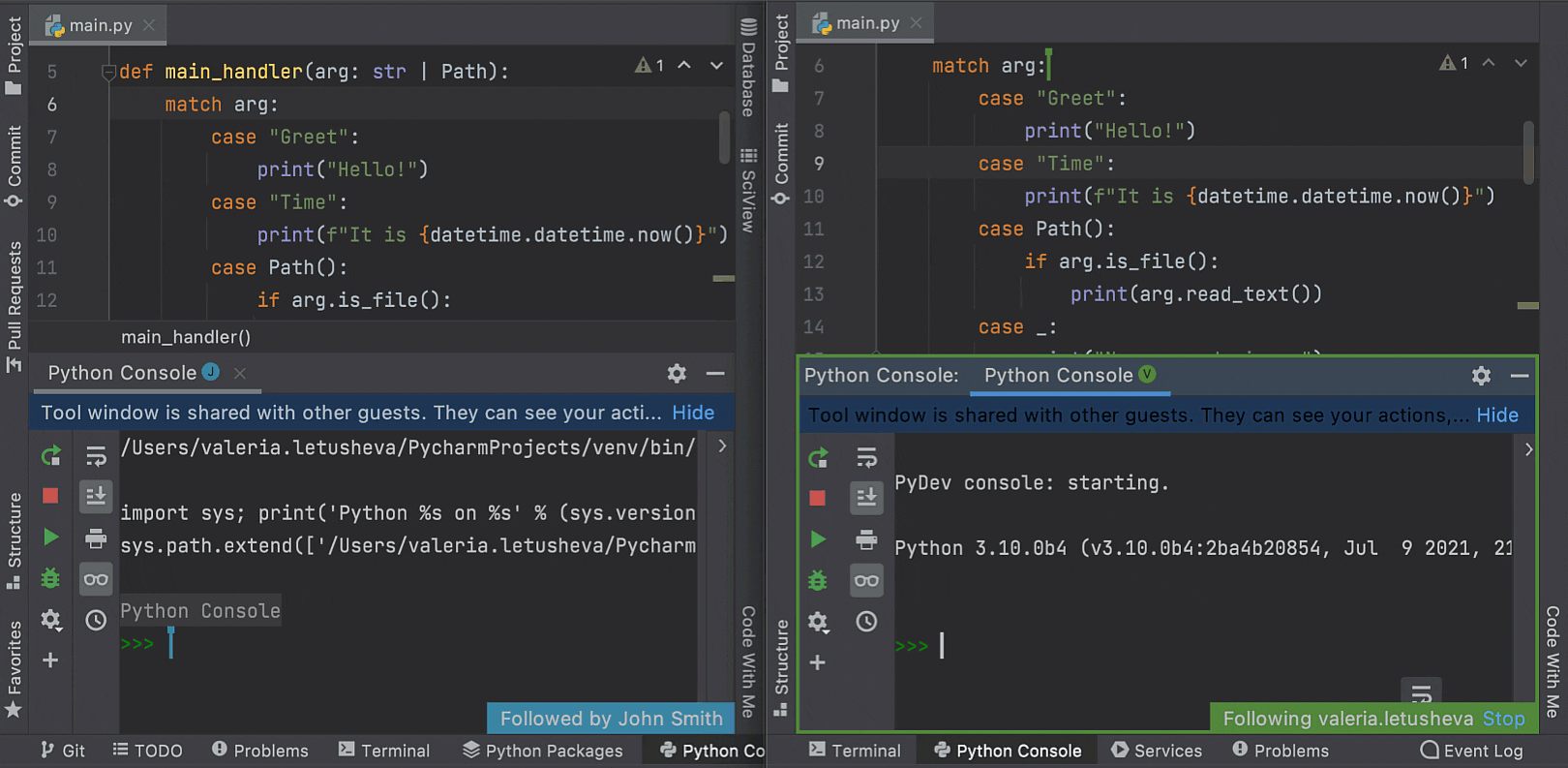
Databases [Pro only]
Code completion for fields and operators in the MongoDB console
Now PyCharm can complete fields, nested fields, and fields inside aggregation expressions, as well as query operators, projection operators, update operators, and aggregation stages in the MongoDB console.
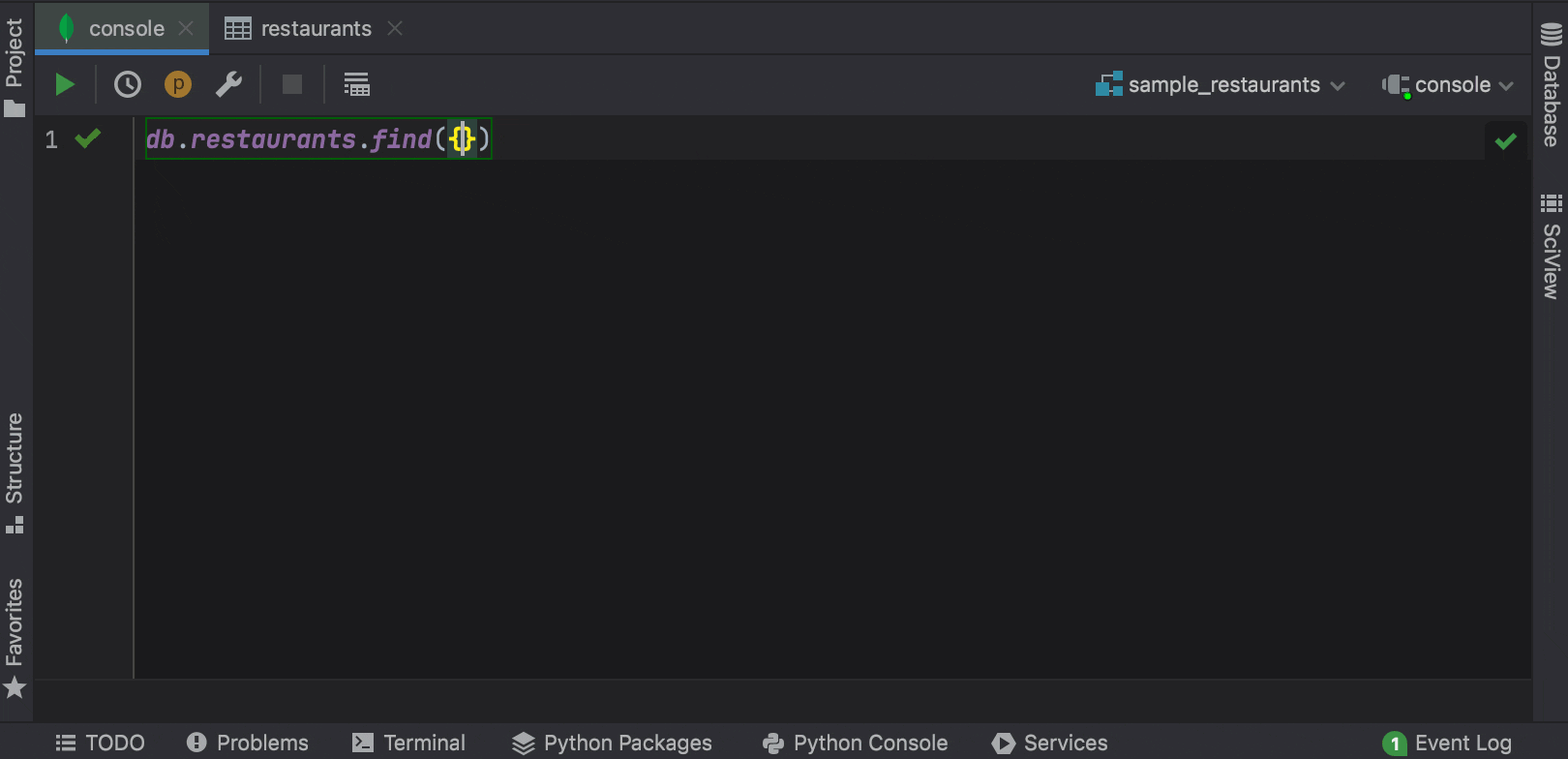
Context live templates from the data editor with SQL scripts action
Context live templates now work directly from the data editor. If you’re working with a table and you wish to query it, you can easily do so with the help of the SQL scripts action!
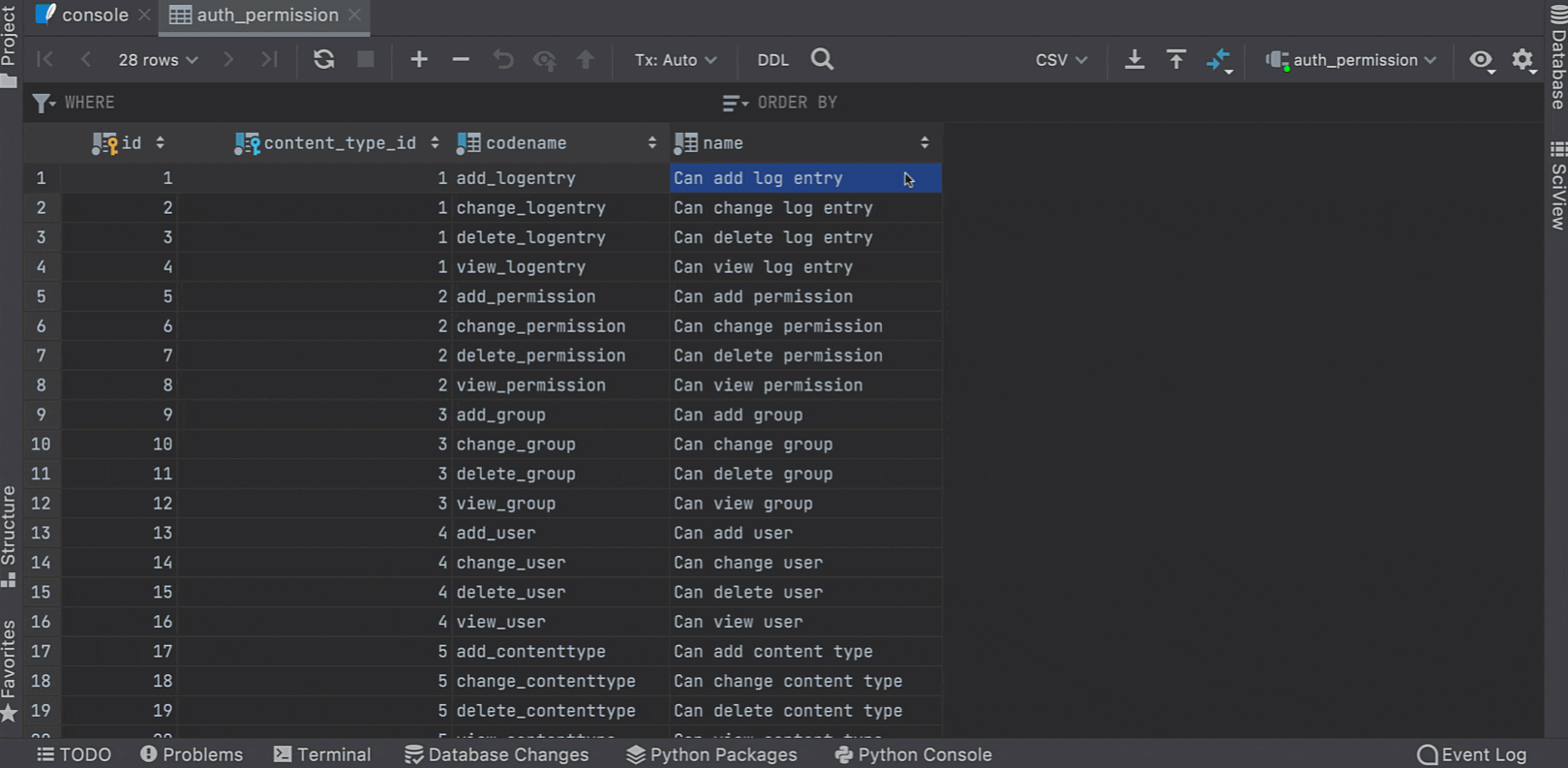
Frontend development [Pro only]
Reload pages in browser on save
PyCharm lets you preview HTML files in a browser using the built-in web server. Now it is able to automatically update the pages in a browser as you edit and save your HTML, CSS, and JavaScript files. To get started, open an HTML file in the editor, hover over the corner of the editor, and click on the icon for the browser you want to use – all browsers are supported.
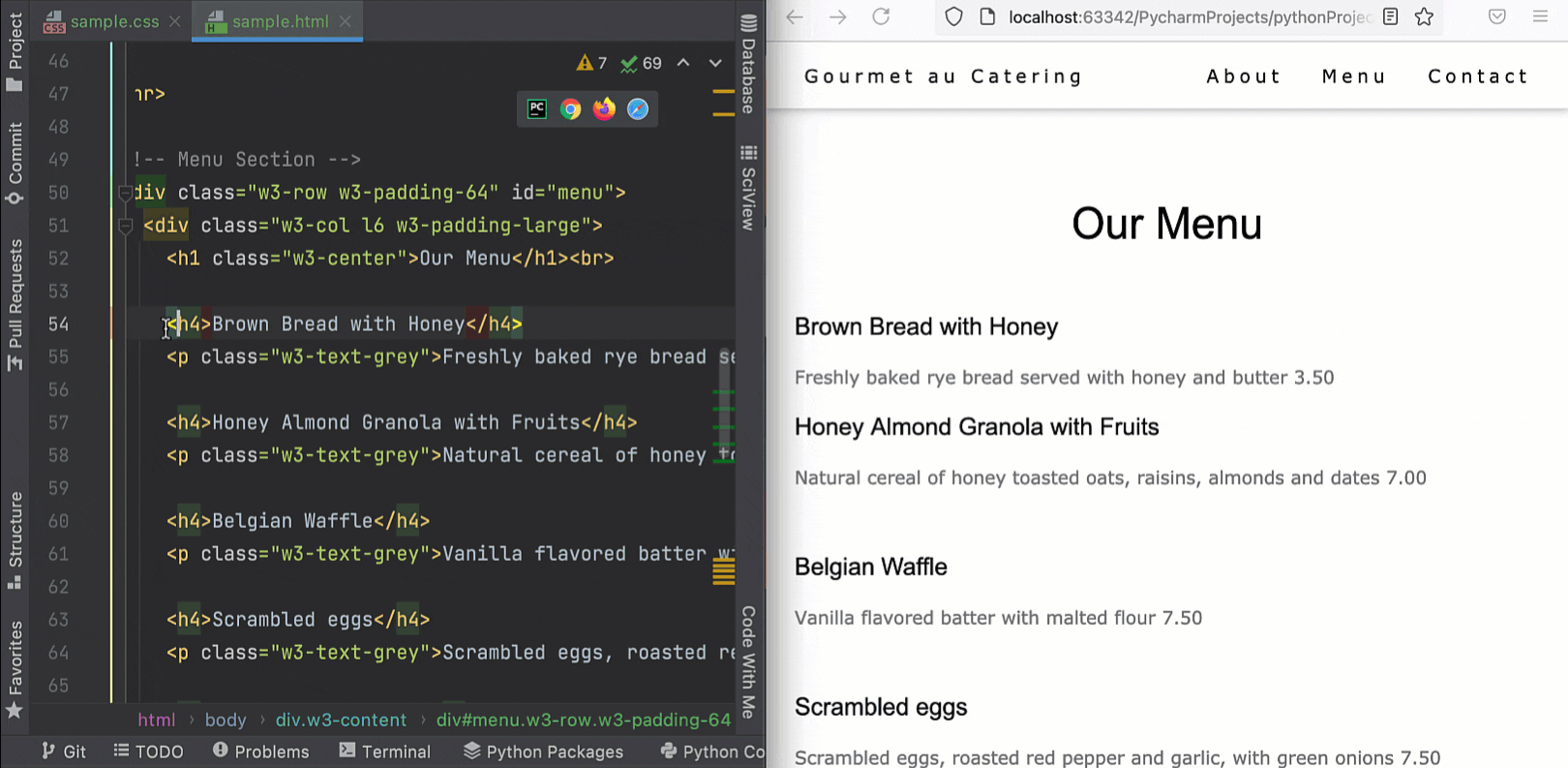
Onboarding Tour in the Features Trainer plugin
You can now take the new Onboarding Tour in the IDE Features Trainer plugin.
With this 7-minute tour, you can get familiar with the PyCharm user interface and learn how to code in Python with smart assistance! You can start the tour from the Welcome screen or from the PyCharm main menu: Help | Learn IDE Features.

Testing
Test runner auto-detection
PyCharm auto-detects when there is a test runner installed on your Python interpreter and uses it to run tests. If no specific test runner is installed, PyCharm uses unittest. Still, you always have an option to explicitly specify the required test runner in the project settings. To explicitly set the required test runner in the project settings, press ⌘, to open the IDE settings and select Tools | Python Integrated Tools, and then select the target test runner from the Default test runner list.
Integrate with TestRail
The Test Management plugin now includes support for Python and is available for PyCharm Community. The Test Management plugin helps keep your unit tests in sync with test cases in TMS. You can load test cases from TestRail and link them with existing and new unit tests.
When you copy and paste a test case to a Python file a copy of the unit test will be pasted. You can customize the unit test template and share it with the team. With the plugin you can find test cases that are not yet automated (not linked with unit tests) and obsolete tests.
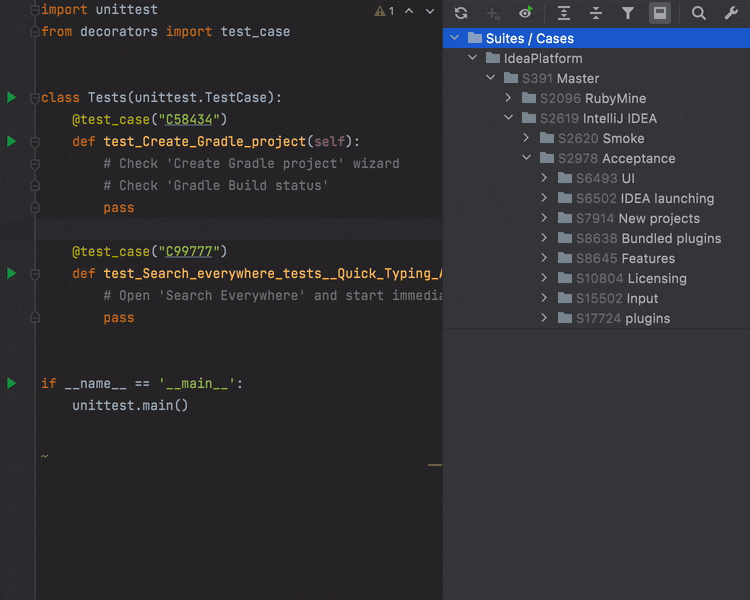
Generate Test Data
Being able to insert a randomly generated email, name, or phone number is important when developing unit tests. As a part of our Test Automation Kit the new Test Data plugin plugin brings a lot of useful actions that help to generate random data. Use the Generate menu (Cmd+N) to see all available options. If you need a specific format, feel free to create your own custom data format based on regular expression or Velocity templates. All custom data types are available in bulk mode and can be shared with your team.
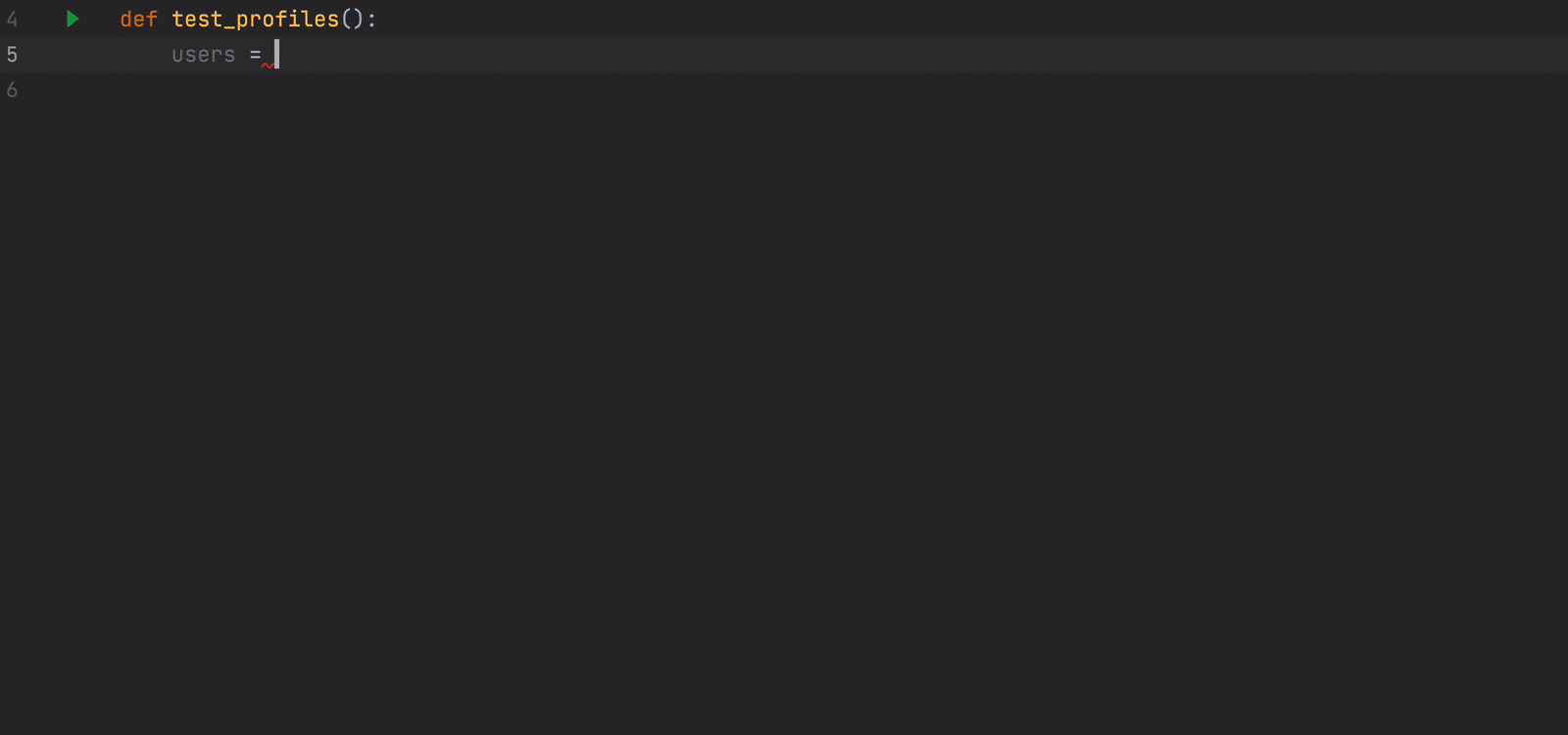
In this blog post we covered only a few major features of PyCharm 2021.2. To learn about all the other new features in PyCharm 2021.2 visit our What’s New page.

